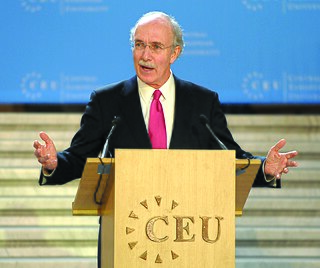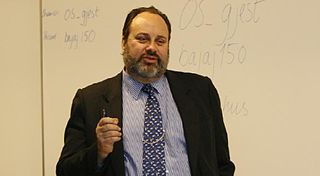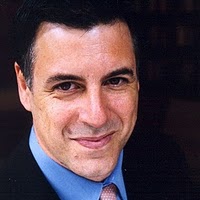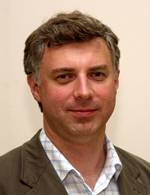Related Research Articles

M. V. Lomonosov Moscow State University is a public research university in Moscow, Russia, and the most prestigious university in the country.

Central European University is a private research university accredited in Austria, Hungary, and the United States, with campuses in Vienna and Budapest. The university is known for its highly intensive programs in the social sciences and humanities, low student-faculty ratio, and international student body. A central tenet of the university's mission is the promotion of open societies, as a result of its close association with the Open Society Foundations. CEU is one of eight members comprising the CIVICA Alliance, a group of European higher education institutions in the social sciences, humanities, business management and public policy, such as Sciences Po (France), The London School of Economics and Political Science (UK), Bocconi University (Italy) and the Stockholm School of Economics (Sweden).

John Howard Francis Shattuck is an international legal scholar and human rights leader. He served as the fourth President and Rector of Central European University (CEU) from August 2009 until July 31, 2016. He is a senior fellow at the Harvard Kennedy School, and he joined the faculty of Fletcher School of Law and Diplomacy in January 2017.

The MSU Faculty of Journalism is a faculty of the Moscow State University. It is situated on the Mohovaya, 9, in downtown [Moscow, approximately one block away from the Kremlin.

The Academia Europaea is a pan-European Academy of Humanities, Letters, Law, and Sciences. The Academia was founded in 1988 as a functioning Europe-wide Academy that encompasses all fields of scholarly inquiry. It acts as co-ordinator of European interests in national research agencies.

Andrei Alekseyevich Soldatov is a Russian investigative journalist and Russian security services expert. Together with fellow journalist Irina Borogan he is co-founder and editor of the Agentura.Ru website.

Robert Georges Picard is an American writer and scholar in the field of media businesses and media policy economics. He heavily influenced media economics studies.

The Information Society Project (ISP) at Yale Law School is an intellectual center studying the implications of the Internet and new information technologies for law and society. The ISP was founded in 1997 by Jack Balkin, Knight Professor of Constitutional Law and the First Amendment at Yale Law School. Jack Balkin is the director of the ISP.

Markos Kounalakis is an American syndicated journalist and scholar who is the second gentleman of California as the husband of lieutenant governor Eleni Kounalakis. Kounalakis writes a syndicated weekly foreign affairs column for The Miami Herald and McClatchy-Tribune News and is a frequent foreign affairs analyst for CBS News and CNN International. Kounalakis' last syndicated weekly column appeared in the Miami Herald on November 6, 2020. His 2018 National Society of Newspaper Columnists award stated that "Kounalakis's world affairs columns not only offer strong prose and strong opinions, they offer an education." In 2019, he won a SPJ Sunshine State Award for his foreign affairs commentary and criticism.
Kyu Ho Youm is a professor and the Jonathan Marshall First Amendment Chair at the University of Oregon School of Journalism and Communication.
Igor Cașu is a historian from the Republic of Moldova.
Monroe Edwin Price was director of the University of Pennsylvania's Center for Global Communication Studies (CGCS) at the Annenberg School for Communication at the University of Pennsylvania and director of the Stanhope Centre for Communications Policy Research in London.
Sergei Kukharenko, a Ph D in Philosophy, is a political scientist, an expert on Russian and Chinese politics, the Head of the Institute for Public Diplomacy in Asia Pacific, a member of Gorchakov foundation club of Russian foreign policy experts, a former leader of Amur Oblast regional department of the Right Cause right-wing liberal political party, and Republican Party of Russia - People's Freedom Party.
The Center for Global Communication Studies (CGCS) is a research center located within the Annenberg School for Communication at the University of Pennsylvania. CGCS serves as a research hub for students and scholars worldwide studying comparative communication studies, media law, and media policy. The center also provides consulting and advisory assistance to academic centers, non-governmental organizations, regulators, lawyers, and governments throughout the world.

Andreas Umland is a political scientist studying contemporary Russian and Ukrainian history as well as regime transitions. He has published on the post-Soviet extreme right, municipal decentralization, European fascism, post-communist higher education, East European geopolitics, Ukrainian and Russian nationalism, the Donbas and Crimea conflicts, as well as the neighborhood and enlargement policies of the European Union. He is a Senior Expert at the Ukrainian Institute for the Future in Kyiv as well as a Research Fellow at the Swedish Institute for International Affairs in Stockholm. He lives in Kyiv, and teaches as an Associate Professor of Politics at the National University of Kyiv-Mohyla Academy. In 2005–2014, he was involved in the creation of a new Master's program in German and European Studies administered jointly by the Kyiv-Mohyla Academy and Jena University.

Serhiy Myronovych Kvit, is a Ukrainian literary critic, journalist, educator and social activist. Former champion of Ukraine in fencing (1984). Serhiy Kvit served as Rector (President) of the National University of Kyiv-Mohyla Academy from 2007 until 2014. He occupied the position of Minister of Education and Science of Ukraine in 2014-2016 when the progressive Laws on Higher Education (2014) and On Science and Research (2015) were adopted. In 2015 Serhiy Kvit signed an agreement that allowed Ukrainian scientists and businesses to fully participate in Horizon 2020 (H2020), the European Union’s flagship research program.
The Center for Media, Data and Society (CMDS)(now closed) was a global research center at Central European University (CEU) that focused on media, communication and information policy. Located in Budapest, Hungary, CMDS produced scholarly and practice-oriented research about journalism, media freedom, and internet policy. In October 2022, CMDS began its operations under the name Media and Journalism Research Center (MJRC) independently of CEU.
Austin Choi-Fitzpatrick is an American scholar and writer. His work explores the interplay of social, economic, political, and technological forces in the process of social change.

Nicola Ann Spaldin FRS is Professor of Materials Theory at ETH Zurich, known for her pioneering research on multiferroics.
The Department of Public Policy, formerly School of Public Policy (SPP) at Central European University (CEU) is an English-language graduate institution with campuses in Budapest and Vienna. CEU was founded by philanthropist George Soros.
References
- ↑ "Personnel".
- ↑ "Law Section | IAMCR".
- ↑ "Media and Law". Archived from the original on 29 September 2011.
- ↑ "Andrei Richter".
- ↑ "Рихтер А.Г."
- ↑ ORCID: https://orcid.org/0000-0002-9625-7577 Scopus Author ID: 24587941500 Web of Science: GLV-3429-2022 Google Scholar: https://scholar.google.ru/citations?user=BRC6ANUAAAAJ&hl=ru Academia.edu: https://ceu.academia.edu/AndreiRichter
- ↑ "Andrei Richter".
- ↑ "Non-Resident CMDS Fellows | CMDS".
ORCID: https://orcid.org/0000-0002-9625-7577 Scopus Author ID: 24587941500 Web of Science: GLV-3429-2022 Google Scholar: https://scholar.google.ru/citations?user=BRC6ANUAAAAJ&hl=ru Academia.edu: https://ceu.academia.edu/AndreiRichter